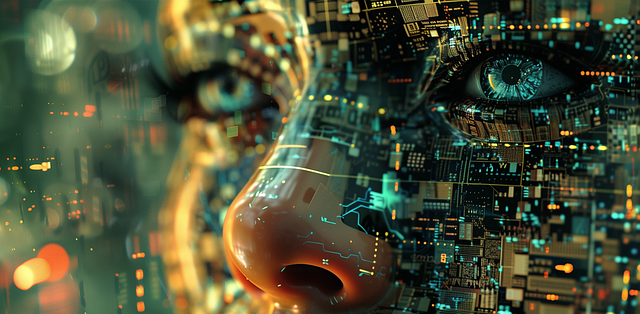How Artificial Intelligence is Transforming the World
Introduction to Artificial Intelligence
Artificial Intelligence (AI) refers to the simulation of human intelligence processes by machines, particularly computer systems. AI systems are designed to perform tasks that typically require human intelligence, making them a cornerstone of modern technological development.
The history of AI traces back to philosophical inquiries about the nature of knowledge and intelligence. However, the formal foundation of AI as a scientific discipline was laid in the mid-20th century. The Dartmouth Conference in 1956 is often considered the birthplace of AI, where the term “Artificial Intelligence” was coined.
Early efforts in AI focused on developing algorithms and computational models for reasoning and problem-solving, which led to the creation of early AI programs like the Logic Theorist and General Problem Solver.
Over the decades, AI has evolved through various phases of innovation and setbacks. The initial optimism was followed by periods known as “AI winters,” where progress slowed due to unrealistic expectations and technological limitations. However, advancements in computational power, data availability, and algorithmic techniques have revitalized AI research and applications in recent years.
Today, AI encompasses a broad range of technologies, including machine learning, deep learning, natural language processing, and computer vision.
The increasing relevance of AI in today’s world cannot be overstated. It has become integral to numerous sectors, driving efficiency and innovation. In healthcare, AI aids in diagnostic accuracy and personalized treatment plans. In business, it enhances automation and decision-making processes.
The future of AI promises even more transformative impacts, from autonomous vehicles to intelligent personal assistants, reshaping the way we live and work.
This introduction sets the stage for a deeper exploration into how AI is transforming various facets of our world, highlighting its journey from theoretical concepts to groundbreaking applications that redefine the boundaries of what machines can achieve.
AI in Healthcare
The integration of Artificial Intelligence in healthcare is revolutionizing the industry, leading to significant advancements in diagnostics, treatment plans, and surgical procedures. AI-driven diagnostics are transforming the way diseases are detected and diagnosed, leveraging machine learning algorithms to analyze medical images and patient data with unprecedented accuracy.
These advancements enable early detection of conditions such as cancer, heart disease, and neurological disorders, thereby improving patient outcomes and survival rates.
By analyzing a patient’s genetic makeup, lifestyle, and medical history, AI can develop tailored treatment strategies that are more effective and less invasive than traditional approaches. This personalized approach not only enhances the efficacy of treatments but also reduces the risk of adverse effects, thereby improving the overall quality of healthcare.
Robotic surgery represents a significant leap forward in medical technology. AI-powered robotic systems assist surgeons in performing complex procedures with greater precision and control, reducing the likelihood of human error. These systems can execute minimally invasive surgeries, leading to shorter recovery times, reduced pain, and lower risk of infection for patients. The future of AI in healthcare is poised to bring about even more sophisticated robotic systems, further enhancing surgical outcomes.
Despite its numerous benefits, the adoption of AI in healthcare does present challenges. Ethical considerations are paramount, particularly concerning the use of AI in decision-making processes that directly impact patient care. Ensuring data privacy and security is another critical concern, as the vast amounts of sensitive patient information processed by AI systems must be safeguarded against breaches and unauthorized access.
In summary, the evolution of AI in healthcare is ushering in a new era of medical innovation, characterized by improved accuracy, efficiency, and patient outcomes. However, addressing ethical and data privacy issues will be crucial to fully realizing the potential of AI in this sector.

AI in Business and Industry
Artificial Intelligence (AI) is revolutionizing the business landscape by introducing unprecedented levels of innovation and efficiency. One significant application is in manufacturing, where AI-driven technologies like machine learning algorithms are optimizing production processes.
These algorithms analyze vast amounts of data to predict equipment failures before they occur, thereby reducing downtime and maintenance costs. Predictive analytics also play a crucial role in quality control, ensuring that products meet high standards consistently.
In supply chain management, AI enhances logistics by predicting demand, optimizing routes, and managing inventory more effectively. Natural language processing (NLP) is being employed to improve communication and coordination among supply chain stakeholders. For instance, AI-powered chatbots can handle inquiries and provide real-time updates, streamlining operations and reducing delays.
AI-driven virtual assistants and chatbots use natural language processing to understand and respond to customer queries efficiently. This not only improves the customer experience but also allows human agents to focus on more complex issues. Additionally, machine learning algorithms analyze customer data to provide personalized recommendations and anticipate future needs, enhancing customer satisfaction and loyalty.
Financial services have also embraced AI, particularly in areas such as fraud detection, risk management, and investment strategies. Predictive analytics help financial institutions identify suspicious activities by analyzing transaction patterns, thereby preventing fraud. Machine learning models assess credit risk more accurately by considering a broader range of variables than traditional methods.
Furthermore, AI-driven robo-advisors offer personalized investment advice based on individual risk profiles and financial goals, democratizing access to sophisticated financial planning.
The future of AI in business and industry promises even greater advancements. As AI technologies continue to evolve, their integration will become more seamless, driving further innovation and efficiency across various sectors. From manufacturing to customer service, and financial services, AI is setting new standards and transforming the way businesses operate.

The Future of AI and Its Ethical Implications
The future of AI is poised to bring transformative changes across various sectors, driven by rapid advancements in machine learning, neural networks, and data analytics.
As we look ahead, several emerging trends suggest that AI will continue to evolve, enhancing capabilities in areas such as natural language processing, autonomous systems, and predictive analytics. These advancements hold the potential to revolutionize industries, from healthcare and finance to manufacturing and retail, by streamlining processes and fostering innovation.
However, the evolution of AI is not without its ethical challenges. One of the primary concerns is job displacement, as automation and AI-powered systems increasingly perform tasks traditionally done by humans. While AI can augment human capabilities and create new job opportunities, there is a pressing need for strategies to manage workforce transitions and ensure that the benefits of AI are equitably distributed.
Algorithmic bias is another critical issue. AI systems learn from data, and if that data contains biases, the resulting algorithms can perpetuate and even exacerbate those biases. This can lead to unfair treatment in areas such as hiring, lending, and law enforcement. It is essential to develop methodologies for identifying and mitigating bias in AI systems to promote fairness and inclusivity.
Moreover, the future of AI necessitates robust regulatory frameworks to safeguard against potential risks. Policymakers and industry leaders must collaborate to establish guidelines that ensure transparency, accountability, and ethical standards in AI development and deployment. These frameworks should address issues such as data privacy, security, and the ethical use of AI in decision-making processes.
In contemplating the future of AI, it is crucial to balance the opportunities for innovation with the responsibility to address ethical implications. Responsible AI practices, including continuous monitoring and evaluation, stakeholder engagement, and adherence to ethical principles, are vital to harnessing the transformative potential of AI while mitigating its risks. As we navigate this complex landscape, a commitment to ethical AI development will be instrumental in shaping a future that benefits all of society.

